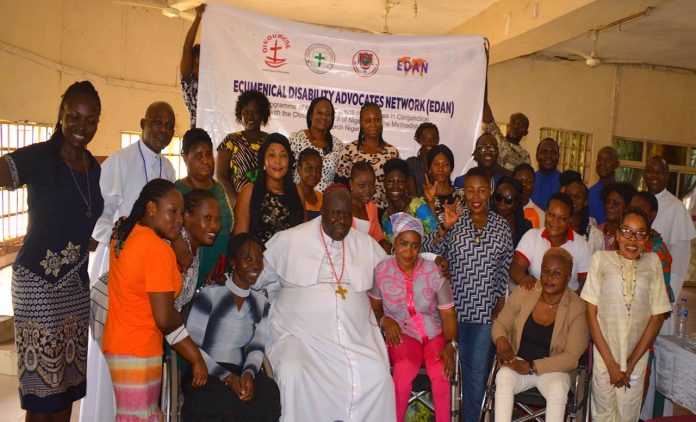“The church has lots of roles in removing barriers that prevent persons with disabilities from living a fulfilled life. All are created in the image of God and have equal rights. Sexual and reproductive health is one such right that should not be denied to any woman,” said Rev. Evans Onyemara, general secretary of the Christian Council of Nigeria during a training on empowering women with disabilities on sexual and reproductive health care held at Umuahia, Nigeria from 9-11 March.
The training initiated by the World Council of Churches Ecumenical Disability Advocates Network and hosted by the Methodist Church Nigeria is part of a six-month project aimed at empowering women with disabilities in Nigeria on sexual and reproductive health rights through increased access to information and services.
As in most developing countries, women with disabilities in Nigeria are not empowered and have little or no access to information and essential services on sexual and reproductive health. They are perceived as unproductive and their sexual and reproductive health needs not met which shuts them out.
“We have been made by God and given self worth and confidence. We must value God’s creation and renew our minds to be like Christ’s mind who accepts us the way we are,” said Archbishop Raphael Opoko, Methodist Church Nigeria.
The church has direct contact with people and plays a major role in lifting the voices of the most vulnerable in the society. “Religion plays a big role in shaping the daily lives of the society. The church can provide women with disabilities with opportunity to learn, dialogue and interact while journeying with them in advocating for attainment of sexual and reproductive health,” said Anjeline Okola, programme coordinator for the Ecumenical Disability Advocates Network.
Participants of the training, church leaders and women with disabilities, were familiarised with national and international frameworks safeguarding sexual and reproductive rights, listened to experiences of women with disabilities on sexual and reproductive health, and received a presentation on the ecumenical response to sexual and reproductive health care.
WCC, oikoumene.org















